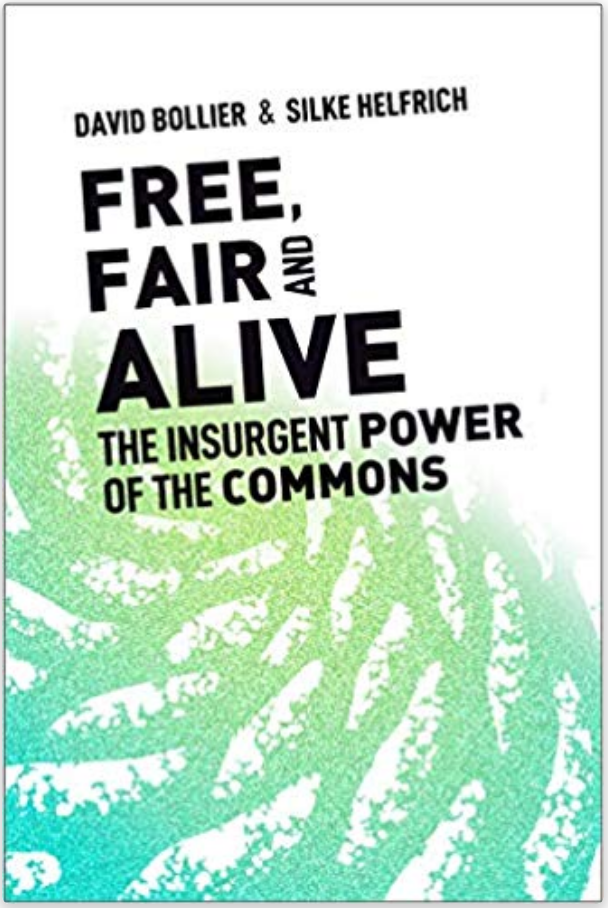On the Road with ‘Free, Fair and Alive’
Book tours are known for being grueling odysseys. While it wasn’t a breeze to speak at two dozen events in ten weeks of travel in Europe, UK and the US, it was a joy for me to connect with so many different commoners. I found my visits often amounted to field research filled with unexpected discoveries and chance insights. At events I invariably wound up meeting several fascinating commoners and learning about some amazing research initiative.
My general conclusion: The commons world is quite robust -- but it’s not terribly visible to mainstream culture. So the book tour confirmed the aspirations that my coauthor Silke Helfrich and I had for the book, Free, Fair and Alive. We wanted to generate some new concepts, vocabulary, and analyses to bring commoning into sharper focus. That forced us to dig more deeply into the inner dimensions of commoning and into its political implications, especially as it bumps up against property rights and state power. 
I'm happy to say that all of our efforts paid off in the end. I kept meeting people who are all too ready to move beyond conventional politics and explore the rich possibilities of the commons.
To recap for newcomers: Free, Fair and Alive is one of the most comprehensive, in-depth looks at what the commons means in contemporary life. Silke and I spent almost three years trying to make sense of the countless commons we had observed over the preceding 15 years. From her village in Germany and on trains criss-crossing Europe, and from my office in Amherst, Massachusetts -- with occasional in-person work sessions -- we plunged into a serious mutual debriefing about what we had each learned. We wanted to see if we could conceptualize the commons in ways that truly reflect what we had witnessed in Mexico and Greece, India and Germany, the US and UK, and many other places.
Halfway through our research, we realized with a shock that much of the language we were using was seriously wrong and misleading. When using words like “individual,” “rationality” and “resources,” for example – the standard vocabulary of modern economics – we found ourselves locked into a deeply troubling worldview. Do we really wish to regard human beings -- as economists ostensibly do -- as isolated individuals striving to maximize their material self-interests and “externalizing” costs on to “nature.” Is this what "rationality" is?
- Read more about On the Road with ‘Free, Fair and Alive’
- Log in or register to post comments


 y – assembled for an access rally in the Winnats Pass, near Castleton, and the pressure for greater access continued to grow.
y – assembled for an access rally in the Winnats Pass, near Castleton, and the pressure for greater access continued to grow.









Recent comments